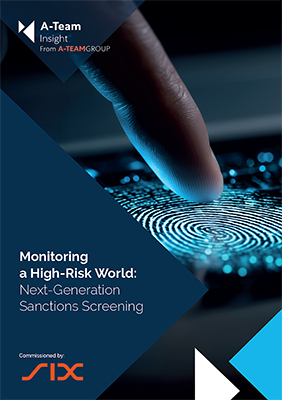
Monitoring a High-Risk World: Next-Generation Sanctions Screening
Sanctions remain a critical tool in international relations, influencing global finance, politics and security. In the past five years, global economic and financial sanctions have intensified amid rising geopolitical uncertainty, creating a complex landscape for financial institutions worldwide, the report states.
The risk that institutions can inadvertently engage with sanctioned securities has never been higher, raising the stakes for compliance teams. Failure to effectively screen can lead to severe financial penalties as well as reputational damage.
As regulatory frameworks evolve, compliance becomes increasingly complex, requiring robust mechanisms and continuous monitoring. With the right tools and proactive monitoring, however, companies can navigate these challenges confidently.
A white paper published by A-Team Group with SIX highlights the importance of understanding and adapting to these changes to navigate the challenges and opportunities they present.
From this report, readers will gain insights into:
- The increasing sanctions exposure risks that financial institutions face amid rising geopolitical and trade tensions, especially as multi-asset ETF investment strategies flourish.
- The hidden dangers as companies and individuals go to greater lengths to obscure their links to sanctioned entities.
- The broader range of sanctioning tools that governments are using and the fast-changing and evolving obligations they place on compliance teams.
- The importance of good-quality data as part of an effective sanctions screening programme that can monitor watchlists and blacklists.
- How automation of screening processes is improving organisations’ ability to identify and prevent interactions with proscribed parties and reducing the number of false positives generated in their screening sweeps, meaning professionals can get on with the important job of dealing with real threats.
